

Choose Your Test
- Search Blogs By Category
- College Admissions
- AP and IB Exams
- GPA and Coursework
Bad College Essays: 10 Mistakes You Must Avoid
College Essays

Just as there are noteworthy examples of excellent college essays that admissions offices like to publish, so are there cringe-worthy examples of terrible college essays that end up being described by anonymous admissions officers on Reddit discussion boards.
While I won't guarantee that your essay will end up in the first category, I will say that you follow my advice in this article, your essay most assuredly won't end up in the second. How do you avoid writing a bad admissions essay? Read on to find out what makes an essay bad and to learn which college essay topics to avoid. I'll also explain how to recognize bad college essays—and what to do to if you end up creating one by accident.

What Makes Bad College Essays Bad
What exactly happens to turn a college essay terrible? Just as great personal statements combine an unexpected topic with superb execution, flawed personal statements compound problematic subject matter with poor execution.
Problems With the Topic
The primary way to screw up a college essay is to flub what the essay is about or how you've decided to discuss a particular experience. Badly chosen essay content can easily create an essay that is off-putting in one of a number of ways I'll discuss in the next section.
The essay is the place to let the admissions office of your target college get to know your personality, character, and the talents and skills that aren't on your transcript. So if you start with a terrible topic, not only will you end up with a bad essay, but you risk ruining the good impression that the rest of your application makes.
Some bad topics show admissions officers that you don't have a good sense of judgment or maturity , which is a problem since they are building a class of college students who have to be able to handle independent life on campus.
Other bad topics suggest that you are a boring person , or someone who doesn't process your experience in a colorful or lively way, which is a problem since colleges want to create a dynamic and engaged cohort of students.
Still other bad topics indicate that you're unaware of or disconnected from the outside world and focused only on yourself , which is a problem since part of the point of college is to engage with new people and new ideas, and admissions officers are looking for people who can do that.
Problems With the Execution
Sometimes, even if the experiences you discuss could be the foundation of a great personal statement, the way you've structured and put together your essay sends up warning flags. This is because the admissions essay is also a place to show the admissions team the maturity and clarity of your writing style.
One way to get this part wrong is to exhibit very faulty writing mechanics , like unclear syntax or incorrectly used punctuation. This is a problem since college-ready writing is one of the things that's expected from a high school graduate.
Another way to mess this up is to ignore prompt instructions either for creative or careless reasons. This can show admissions officers that you're either someone who simply blows off directions and instructions or someone who can't understand how to follow them . Neither is a good thing, since they are looking for people who are open to receiving new information from professors and not just deciding they know everything already.

College Essay Topics To Avoid
Want to know why you're often advised to write about something mundane and everyday for your college essay? That's because the more out-there your topic, the more likely it is to stumble into one of these trouble categories.
Too Personal
The problem with the overly personal essay topic is that revealing something very private can show that you don't really understand boundaries . And knowing where appropriate boundaries are will be key for living on your own with a bunch of people not related to you.
Unfortunately, stumbling into the TMI zone of essay topics is more common than you think. One quick test for checking your privacy-breaking level: if it's not something you'd tell a friendly stranger sitting next to you on the plane, maybe don't tell it to the admissions office.
- Describing losing your virginity, or anything about your sex life really. This doesn't mean you can't write about your sexual orientation—just leave out the actual physical act.
- Writing in too much detail about your illness, disability, any other bodily functions. Detailed meaningful discussion of what this physical condition has meant to you and your life is a great thing to write about. But stay away from body horror and graphic descriptions that are simply there for gratuitous shock value.
- Waxing poetic about your love for your significant other. Your relationship is adorable to the people currently involved in it, but those who don't know you aren't invested in this aspect of your life.
- Confessing to odd and unusual desires of the sexual or illegal variety. Your obsession with cultivating cacti is wonderful topic, while your obsession with researching explosives is a terrible one.

Too Revealing of Bad Judgment
Generally speaking, leave past illegal or immoral actions out of your essay . It's simply a bad idea to give admissions officers ammunition to dislike you.
Some exceptions might be if you did something in a very, very different mindset from the one you're in now (in the midst of escaping from danger, under severe coercion, or when you were very young, for example). Or if your essay is about explaining how you've turned over a new leaf and you have the transcript to back you up.
- Writing about committing crime as something fun or exciting. Unless it's on your permanent record, and you'd like a chance to explain how you've learned your lesson and changed, don't put this in your essay.
- Describing drug use or the experience of being drunk or high. Even if you're in a state where some recreational drugs are legal, you're a high school student. Your only exposure to mind-altering substances should be caffeine.
- Making up fictional stories about yourself as though they are true. You're unlikely to be a good enough fantasist to pull this off, and there's no reason to roll the dice on being discovered to be a liar.
- Detailing your personality flaws. Unless you have a great story of coping with one of these, leave deal-breakers like pathological narcissism out of your personal statement.

Too Overconfident
While it's great to have faith in your abilities, no one likes a relentless show-off. No matter how magnificent your accomplishments, if you decide to focus your essay on them, it's better to describe a setback or a moment of doubt rather that simply praising yourself to the skies.
- Bragging and making yourself the flawless hero of your essay. This goes double if you're writing about not particularly exciting achievements like scoring the winning goal or getting the lead in the play.
- Having no awareness of the actual scope of your accomplishments. It's lovely that you take time to help others, but volunteer-tutoring a couple of hours a week doesn't make you a saintly figure.

Too Clichéd or Boring
Remember your reader. In this case, you're trying to make yourself memorable to an admissions officer who has been reading thousands of other essays . If your essay makes the mistake of being boring or trite, it just won't register in that person's mind as anything worth paying attention to.
- Transcribing your resume into sentence form or writing about the main activity on your transcript. The application already includes your resume, or a detailed list of your various activities. Unless the prompt specifically asks you to write about your main activity, the essay needs to be about a facet of your interests and personality that doesn't come through the other parts of the application.
- Writing about sports. Every athlete tries to write this essay. Unless you have a completely off-the-wall story or unusual achievement, leave this overdone topic be.
- Being moved by your community service trip to a third-world country. Were you were impressed at how happy the people seemed despite being poor? Did you learn a valuable lesson about how privileged you are? Unfortunately, so has every other teenager who traveled on one of these trips. Writing about this tends to simultaneously make you sound unempathetic, clueless about the world, way over-privileged, and condescending. Unless you have a highly specific, totally unusual story to tell, don't do it.
- Reacting with sadness to a sad, but very common experience. Unfortunately, many of the hard, formative events in your life are fairly universal. So, if you're going to write about death or divorce, make sure to focus on how you dealt with this event, so the essay is something only you could possibly have written. Only detailed, idiosyncratic description can save this topic.
- Going meta. Don't write about the fact that you're writing the essay as we speak, and now the reader is reading it, and look, the essay is right here in the reader's hand. It's a technique that seems clever, but has already been done many times in many different ways.
- Offering your ideas on how to fix the world. This is especially true if your solution is an easy fix, if only everyone would just listen to you. Trust me, there's just no way you are being realistically appreciative of the level of complexity inherent in the problem you're describing.
- Starting with a famous quotation. There usually is no need to shore up your own words by bringing in someone else's. Of course, if you are writing about a particular phrase that you've adopted as a life motto, feel free to include it. But even then, having it be the first line in your essay feels like you're handing the keys over to that author and asking them to drive.
- Using an everyday object as a metaphor for your life/personality. "Shoes. They are like this, and like that, and people love them for all of these reasons. And guess what? They are just like me."

Too Off-Topic
Unlike the essays you've been writing in school where the idea is to analyze something outside of yourself, the main subject of your college essay should be you, your background, your makeup, and your future . Writing about someone or something else might well make a great essay, but not for this context.
- Paying tribute to someone very important to you. Everyone would love to meet your grandma, but this isn't the time to focus on her amazing coming of age story. If you do want to talk about a person who is important to your life, dwell on the ways you've been impacted by them, and how you will incorporate this impact into your future.
- Documenting how well other people do things, say things, are active, while you remain passive and inactive in the essay. Being in the orbit of someone else's important lab work, or complex stage production, or meaningful political activism is a fantastic learning moment. But if you decide to write about, your essay should be about your learning and how you've been influenced, not about the other person's achievements.
- Concentrating on a work of art that deeply moved you. Watch out for the pitfall of writing an analytical essay about that work, and not at all about your reaction to it or how you've been affected since. Check out our explanation of how to answer Topic D of the ApplyTexas application to get some advice on writing about someone else's work while making sure your essay still points back at you.
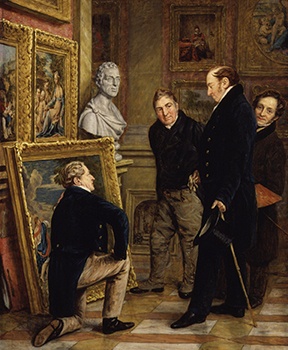
(Image: Pieter Christoffel Wonder [Public domain] , via Wikimedia Commons)

Too Offensive
With this potential mistake, you run the risk of showing a lack of self-awareness or the ability to be open to new ideas . Remember, no reader wants to be lectured at. If that's what your essay does, you are demonstrating an inability to communicate successfully with others.
Also, remember that no college is eager to admit someone who is too close-minded to benefit from being taught by others. A long, one-sided essay about a hot-button issue will suggest that you are exactly that.
- Ranting at length about political, religious, or other contentious topics. You simply don't know where the admissions officer who reads your essay stands on any of these issues. It's better to avoid upsetting or angering that person.
- Writing a one-sided diatribe about guns, abortion, the death penalty, immigration, or anything else in the news. Even if you can marshal facts in your argument, this essay is simply the wrong place to take a narrow, unempathetic side in an ongoing debate.
- Mentioning anything negative about the school you're applying to. Again, your reader is someone who works there and presumably is proud of the place. This is not the time to question the admissions officer's opinions or life choices.

College Essay Execution Problems To Avoid
Bad college essays aren't only caused by bad topics. Sometimes, even if you're writing about an interesting, relevant topic, you can still seem immature or unready for college life because of the way you present that topic—the way you actually write your personal statement. Check to make sure you haven't made any of the common mistakes on this list.
Tone-Deafness
Admissions officers are looking for resourcefulness, the ability to be resilient, and an active and optimistic approach to life —these are all qualities that create a thriving college student. Essays that don't show these qualities are usually suffering from tone-deafness.
- Being whiny or complaining about problems in your life. Is the essay about everyone doing things to/against you? About things happening to you, rather than you doing anything about them? That perspective is a definite turn-off.
- Trying and failing to use humor. You may be very funny in real life, but it's hard to be successfully funny in this context, especially when writing for a reader who doesn't know you. If you do want to use humor, I'd recommend the simplest and most straightforward version: being self-deprecating and low-key.
- Talking down to the reader, or alternately being self-aggrandizing. No one enjoys being condescended to. In this case, much of the function of your essay is to charm and make yourself likable, which is unlikely to happen if you adopt this tone.
- Being pessimistic, cynical, and generally depressive. You are applying to college because you are looking forward to a future of learning, achievement, and self-actualization. This is not the time to bust out your existential ennui and your jaded, been-there-done-that attitude toward life.

(Image: Eduard Munch [Public Domain] , via Wikimedia Commons)
Lack of Personality
One good question to ask yourself is: could anyone else have written this essay ? If the answer is yes, then you aren't doing a good job of representing your unique perspective on the world. It's very important to demonstrate your ability to be a detailed observer of the world, since that will be one of your main jobs as a college student.
- Avoiding any emotions, and appearing robot-like and cold in the essay. Unlike essays that you've been writing for class, this essay is meant to be a showcase of your authorial voice and personality. It may seem strange to shift gears after learning how to take yourself out of your writing, but this is the place where you have to put as much as yourself in as possible.
- Skipping over description and specific details in favor of writing only in vague generalities. Does your narrative feel like a newspaper horoscope, which could apply to every other person who was there that day? Then you're doing it wrong and need to refocus on your reaction, feelings, understanding, and transformation.

Off-Kilter Style
There's some room for creativity here, yes, but a college essay isn't a free-for-all postmodern art class . True, there are prompts that specifically call for your most out-of-left-field submission, or allow you to submit a portfolio or some other work sample instead of a traditional essay. But on a standard application, it's better to stick to traditional prose, split into paragraphs, further split into sentences.
- Submitting anything other than just the materials asked for on your application. Don't send food to the admissions office, don't write your essay on clothing or shoes, don't create a YouTube channel about your undying commitment to the school. I know there are a lot of urban legends about "that one time this crazy thing worked," but they are either not true or about something that will not work a second time.
- Writing your essay in verse, in the form of a play, in bullet points, as an acrostic, or any other non-prose form. Unless you really have a way with poetry or playwriting, and you are very confident that you can meet the demands of the prompt and explain yourself well in this form, don't discard prose simply for the sake of being different.
- Using as many "fancy" words as possible and getting very far away from sounding like yourself. Admissions officers are unanimous in wanting to hear your not fully formed teenage voice in your essay. This means that you should write at the top of your vocabulary range and syntax complexity, but don't trade every word up for a thesaurus synonym. Your essay will suffer for it.

Failure to Proofread
Most people have a hard time checking over their own work. This is why you have to make sure that someone else proofreads your writing . This is the one place where you can, should—and really must—get someone who knows all about grammar, punctuation and has a good eye for detail to take a red pencil to your final draft.
Otherwise, you look like you either don't know the basic rules or writing (in which case, are you really ready for college work?) or don't care enough to present yourself well (in which case, why would the admissions people care about admitting you?).
- Typos, grammatical mistakes, punctuation flubs, weird font/paragraph spacing issues. It's true that these are often unintentional mistakes. But caring about getting it right is a way to demonstrate your work ethic and dedication to the task at hand.
- Going over the word limit. Part of showing your brilliance is being able to work within arbitrary rules and limitations. Going over the word count points to a lack of self-control, which is not a very attractive feature in a college applicant.
- Repeating the same word(s) or sentence structure over and over again. This makes your prose monotonous and hard to read.

Bad College Essay Examples—And How to Fix Them
The beauty of writing is that you get to rewrite. So if you think of your essay as a draft waiting to be revised into a better version rather than as a precious jewel that can't bear being touched, you'll be in far better shape to correct the issues that always crop up!
Now let's take a look at some actual college essay drafts to see where the writer is going wrong and how the issue could be fixed.
Essay #1: The "I Am Writing This Essay as We Speak" Meta-Narrative
Was your childhood home destroyed by a landspout tornado? Yeah, neither was mine. I know that intro might have given the impression that this college essay will be about withstanding disasters, but the truth is that it isn't about that at all.
In my junior year, I always had in mind an image of myself finishing the college essay months before the deadline. But as the weeks dragged on and the deadline drew near, it soon became clear that at the rate things are going I would probably have to make new plans for my October, November and December.
Falling into my personal wormhole, I sat down with my mom to talk about colleges. "Maybe you should write about Star Trek ," she suggested, "you know how you've always been obsessed with Captain Picard, calling him your dream mentor. Unique hobbies make good topics, right? You'll sound creative!" I played with the thought in my mind, tapping my imaginary communicator pin and whispering "Computer. Tea. Earl Grey. Hot. And then an Essay." Nothing happened. Instead, I sat quietly in my room wrote the old-fashioned way. Days later I emerged from my room disheveled, but to my dismay, this college essay made me sound like just a guy who can't get over the fact that he'll never take the Starfleet Academy entrance exam. So, I tossed my essay away without even getting to disintegrate it with a phaser set on stun.
I fell into a state of panic. My college essay. My image of myself in senior year. Almost out of nowhere, Robert Jameson Smith offered his words of advice. Perfect! He suggested students begin their college essay by listing their achievements and letting their essay materialize from there. My heart lifted, I took his advice and listed three of my greatest achievements - mastering my backgammon strategy, being a part of TREE in my sophomore year, and performing "I Am the Very Model of a Modern Major-General" from The Pirates of Penzance in public. And sure enough, I felt inspiration hit me and began to type away furiously into the keyboard about my experience in TREE, or Trees Require Engaged Environmentalists. I reflected on the current state of deforestation, and described the dichotomy of it being both understandable why farmers cut down forests for farmland, and how dangerous this is to our planet. Finally, I added my personal epiphany to the end of my college essay as the cherry on the vanilla sundae, as the overused saying goes.
After 3 weeks of figuring myself out, I have converted myself into a piece of writing. As far as achievements go, this was definitely an amazing one. The ability to transform a human being into 603 words surely deserves a gold medal. Yet in this essay, I was still being nagged by a voice that couldn't be ignored. Eventually, I submitted to that yelling inner voice and decided that this was not the right essay either.
In the middle of a hike through Philadelphia's Fairmount Park, I realized that the college essay was nothing more than an embodiment of my character. The two essays I have written were not right because they have failed to become more than just words on recycled paper. The subject failed to come alive. Certainly my keen interest in Star Trek and my enthusiasm for TREE are a great part of who I am, but there were other qualities essential in my character that did not come across in the essays.
With this realization, I turned around as quickly as I could without crashing into a tree.
What Essay #1 Does Well
Here are all things that are working on all cylinders for this personal statement as is.
Killer First Sentence
Was your childhood home destroyed by a landspout tornado? Yeah, neither was mine.
- A strange fact. There are different kinds of tornadoes? What is a "landspout tornado" anyway?
- A late-night-deep-thoughts hypothetical. What would it be like to be a kid whose house was destroyed in this unusual way?
- Direct engagement with the reader. Instead of asking "what would it be like to have a tornado destroy a house" it asks "was your house ever destroyed."
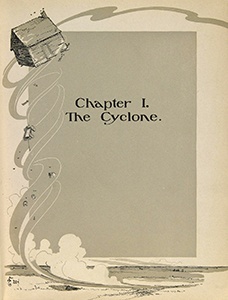
Gentle, Self-Deprecating Humor That Lands Well
I played with the thought in my mind, tapping my imaginary communicator pin and whispering "Computer. Tea. Earl Grey. Hot. And then an Essay." Nothing happened. Instead, I sat quietly in my room wrote the old-fashioned way. Days later I emerged from my room disheveled, but to my dismay, this college essay made me sound like just a guy who can't get over the fact that he'll never take the Starfleet Academy entrance exam. So, I tossed my essay away without even getting to disintegrate it with a phaser set on stun.
The author has his cake and eats it too here: both making fun of himself for being super into the Star Trek mythos, but also showing himself being committed enough to try whispering a command to the Enterprise computer alone in his room. You know, just in case.
A Solid Point That Is Made Paragraph by Paragraph
The meat of the essay is that the two versions of himself that the author thought about portraying each fails in some way to describe the real him. Neither an essay focusing on his off-beat interests, nor an essay devoted to his serious activism could capture everything about a well-rounded person in 600 words.

(Image: fir0002 via Wikimedia Commons .)
Where Essay #1 Needs Revision
Rewriting these flawed parts will make the essay shine.
Spending Way Too Long on the Metanarrative
I know that intro might have given the impression that this college essay will be about withstanding disasters, but the truth is that it isn't about that at all.
After 3 weeks of figuring myself out, I have converted myself into a piece of writing. As far as achievements go, this was definitely an amazing one. The ability to transform a human being into 603 words surely deserves a gold medal.
Look at how long and draggy these paragraphs are, especially after that zippy opening. Is it at all interesting to read about how someone else found the process of writing hard? Not really, because this is a very common experience.
In the rewrite, I'd advise condensing all of this to maybe a sentence to get to the meat of the actual essay .
Letting Other People Do All the Doing
I sat down with my mom to talk about colleges. "Maybe you should write about Star Trek ," she suggested, "you know how you've always been obsessed with Captain Picard, calling him your dream mentor. Unique hobbies make good topics, right? You'll sound creative!"
Almost out of nowhere, Robert Jameson Smith offered his words of advice. Perfect! He suggested students begin their college essay by listing their achievements and letting their essay materialize from there.
Twice in the essay, the author lets someone else tell him what to do. Not only that, but it sounds like both of the "incomplete" essays were dictated by the thoughts of other people and had little to do with his own ideas, experiences, or initiative.
In the rewrite, it would be better to recast both the Star Trek and the TREE versions of the essay as the author's own thoughts rather than someone else's suggestions . This way, the point of the essay—taking apart the idea that a college essay could summarize life experience—is earned by the author's two failed attempts to write that other kind of essay.

Leaving the Insight and Meaning Out of His Experiences
Both the Star Trek fandom and the TREE activism were obviously important life experiences for this author—important enough to be potential college essay topic candidates. But there is no description of what the author did with either one, nor any explanation of why these were so meaningful to his life.
It's fine to say that none of your achievements individually define you, but in order for that to work, you have to really sell the achievements themselves.
In the rewrite, it would be good to explore what he learned about himself and the world by pursuing these interests . How did they change him or seen him into the person he is today?
Not Adding New Shades and Facets of Himself Into the Mix
So, I tossed my essay away without even getting to disintegrate it with a phaser set on stun.
Yet in this essay, I was still being nagged by a voice that couldn't be ignored. Eventually, I submitted to that yelling inner voice and decided that this was not the right essay either.
In both of these passages, there is the perfect opportunity to point out what exactly these failed versions of the essay didn't capture about the author . In the next essay draft, I would suggest subtly making a point about his other qualities.
For example, after the Star Trek paragraph, he could talk about other culture he likes to consume, especially if he can discuss art forms he is interested in that would not be expected from someone who loves Star Trek .
Or, after the TREE paragraph, the author could explain why this second essay was no better at capturing him than the first. What was missing? Why is the self in the essay shouting—is it because this version paints him as an overly aggressive activist?
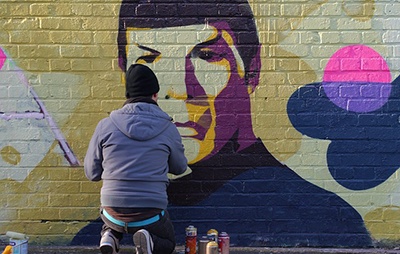
Essay #2: The "I Once Saw Poor People" Service Trip Essay
Unlike other teenagers, I'm not concerned about money, or partying, or what others think of me. Unlike other eighteen year-olds, I think about my future, and haven't become totally materialistic and acquisitive. My whole outlook on life changed after I realized that my life was just being handed to me on a silver spoon, and yet there were those in the world who didn't have enough food to eat or place to live. I realized that the one thing that this world needed more than anything was compassion; compassion for those less fortunate than us.
During the summer of 2006, I went on a community service trip to rural Peru to help build an elementary school for kids there. I expected harsh conditions, but what I encountered was far worse. It was one thing to watch commercials asking for donations to help the unfortunate people in less developed countries, yet it was a whole different story to actually live it. Even after all this time, I can still hear babies crying from hunger; I can still see the filthy rags that they wore; I can still smell the stench of misery and hopelessness. But my most vivid memory was the moment I first got to the farming town. The conditions of it hit me by surprise; it looked much worse in real life than compared to the what our group leader had told us. Poverty to me and everyone else I knew was a foreign concept that people hear about on the news or see in documentaries. But this abject poverty was their life, their reality. And for the brief ten days I was there, it would be mine too. As all of this realization came at once, I felt overwhelmed by the weight of what was to come. Would I be able to live in the same conditions as these people? Would I catch a disease that no longer existed in the first world, or maybe die from drinking contaminated water? As these questions rolled around my already dazed mind, I heard a soft voice asking me in Spanish, "Are you okay? Is there anything I can do to make you feel better?" I looked down to see a small boy, around nine years of age, who looked starved, and cold, wearing tattered clothing, comforting me. These people who have so little were able to forget their own needs, and put those much more fortunate ahead of themselves. It was at that moment that I saw how selfish I had been. How many people suffered like this in the world, while I went about life concerned about nothing at all?
Thinking back on the trip, maybe I made a difference, maybe not. But I gained something much more important. I gained the desire to make the world a better place for others. It was in a small, poverty-stricken village in Peru that I finally realized that there was more to life than just being alive.
What Essay #2 Does Well
Let's first point out what this draft has going for it.
Clear Chronology
This is an essay that tries to explain a shift in perspective. There are different ways to structure this overarching idea, but a chronological approach that starts with an earlier opinion, describes a mind changing event, and ends with the transformed point of view is an easy and clear way to lay this potentially complex subject out.
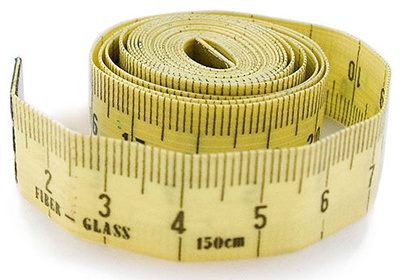
(Image: User:Lite via Wikimedia Commons)
Where Essay #2 Needs Revision
Now let's see what needs to be changed in order for this essay to pass muster.
Condescending, Obnoxious Tone
Unlike other teenagers, I'm not concerned about money, or partying, or what others think of me. Unlike other eighteen year-olds, I think about my future, and haven't become totally materialistic and acquisitive.
This is a very broad generalization, which doesn't tend to be the best way to formulate an argument—or to start an essay. It just makes this author sound dismissive of a huge swath of the population.
In the rewrite, this author would be way better off just concentrate on what she want to say about herself, not pass judgment on "other teenagers," most of whom she doesn't know and will never meet.
I realized that the one thing that this world needed more than anything was compassion; compassion for those less fortunate than us.
Coming from someone who hasn't earned her place in the world through anything but the luck of being born, the word "compassion" sounds really condescending. Calling others "less fortunate" when you're a senior in high school has a dehumanizing quality to it.
These people who have so little were able to forget their own needs, and put those much more fortunate in front of themselves.
Again, this comes across as very patronizing. Not only that, but to this little boy the author was clearly not looking all that "fortunate"—instead, she looked pathetic enough to need comforting.
In the next draft, a better hook could be making the essay about the many different kinds of shifting perspectives the author encountered on that trip . A more meaningful essay would compare and contrast the points of view of the TV commercials, to what the group leader said, to the author's own expectations, and finally to this child's point of view.

Vague, Unobservant Description
During the summer of 2006, I went on a community service trip to rural Peru to help build an elementary school for kids there. I expected harsh conditions, but what I encountered was far worse. It was one thing to watch commercials asking for donations to help the unfortunate people in less developed countries, yet it was a whole different story to actually live it. Even after all this time, I can still hear babies crying from hunger; I can still see the filthy rags that they wore; I can still smell the stench of misery and hopelessness.
Phrases like "cries of the small children from not having enough to eat" and "dirt stained rags" seem like descriptions, but they're really closer to incurious and completely hackneyed generalizations. Why were the kids were crying? How many kids? All the kids? One specific really loud kid?
The same goes for "filthy rags," which is both an incredibly insensitive way to talk about the clothing of these villagers, and again shows a total lack of interest in their life. Why were their clothes dirty? Were they workers or farmers so their clothes showing marks of labor? Did they have Sunday clothes? Traditional clothes they would put on for special occasions? Did they make their own clothes? That would be a good reason to keep wearing clothing even if it had "stains" on it.
The rewrite should either make this section more specific and less reliant on cliches, or should discard it altogether .
The conditions of it hit me by surprise; it looked much worse in real life than compared to the what our group leader had told us. Poverty to me and everyone else I knew was a foreign concept that people hear about on the news or see in documentaries. But this abject poverty was their life, their reality.
If this is the "most vivid memory," then I would expect to read all the details that have been seared into the author's brain. What did their leader tell them? What was different in real life? What was the light like? What did the houses/roads/grass/fields/trees/animals/cars look like? What time of day was it? Did they get there by bus, train, or plane? Was there an airport/train station/bus terminal? A city center? Shops? A marketplace?
There are any number of details to include here when doing another drafting pass.

Lack of Insight or Maturity
But this abject poverty was their life, their reality. And for the brief ten days I was there, it would be mine too. As all of this realization came at once, I felt overwhelmed by the weight of what was to come. Would I be able to live in the same conditions as these people? Would I catch a disease that no longer existed in the first world, or maybe die from drinking contaminated water?
Without a framing device explaining that this initial panic was an overreaction, this section just makes the author sound whiny, entitled, melodramatic, and immature . After all, this isn't a a solo wilderness trek—the author is there with a paid guided program. Just how much mortality is typically associated with these very standard college-application-boosting service trips?
In a rewrite, I would suggest including more perspective on the author's outsized and overprivileged response here. This would fit well with a new focus on the different points of view on this village the author encountered.
Unearned, Clichéd "Deep Thoughts"
But I gained something much more important. I gained the desire to make the world a better place for others. It was in a small, poverty-stricken village in Peru that I finally realized that there was more to life than just being alive.
Is it really believable that this is what the author learned? There is maybe some evidence to suggest that the author was shaken somewhat out of a comfortable, materialistic existence. But what does "there is more to life than just being alive" even really mean? This conclusion is rather vague, and seems mostly a non sequitur.
In a rewrite, the essay should be completely reoriented to discuss how differently others see us than we see ourselves, pivoting on the experience of being pitied by someone who you thought was pitiable. Then, the new version can end by on a note of being better able to understand different points of view and other people's perspectives .

The Bottom Line
- Bad college essays have problems either with their topics or their execution.
- The essay is how admissions officers learn about your personality, point of view, and maturity level, so getting the topic right is a key factor in letting them see you as an aware, self-directed, open-minded applicant who is going to thrive in an environment of independence.
- The essay is also how admissions officers learn that you are writing at a ready-for-college level, so screwing up the execution shows that you either don't know how to write, or don't care enough to do it well.
- The main ways college essay topics go wrong is bad taste, bad judgment, and lack of self-awareness.
- The main ways college essays fail in their execution have to do with ignoring format, syntax, and genre expectations.
What's Next?
Want to read some excellent college essays now that you've seen some examples of flawed one? Take a look through our roundup of college essay examples published by colleges and then get help with brainstorming your perfect college essay topic .
Need some guidance on other parts of the application process? Check out our detailed, step-by-step guide to college applications for advice.
Are you considering taking the SAT or ACT again before you submit your application? Read about our famous test prep guides for hints and strategies for a better score.

Trending Now
How to Get Into Harvard and the Ivy League
How to Get a Perfect 4.0 GPA
How to Write an Amazing College Essay
What Exactly Are Colleges Looking For?
ACT vs. SAT: Which Test Should You Take?
When should you take the SAT or ACT?
Get Your Free

Find Your Target SAT Score
Free Complete Official SAT Practice Tests
How to Get a Perfect SAT Score, by an Expert Full Scorer
Score 800 on SAT Math
Score 800 on SAT Reading and Writing
How to Improve Your Low SAT Score
Score 600 on SAT Math
Score 600 on SAT Reading and Writing
Find Your Target ACT Score
Complete Official Free ACT Practice Tests
How to Get a Perfect ACT Score, by a 36 Full Scorer
Get a 36 on ACT English
Get a 36 on ACT Math
Get a 36 on ACT Reading
Get a 36 on ACT Science
How to Improve Your Low ACT Score
Get a 24 on ACT English
Get a 24 on ACT Math
Get a 24 on ACT Reading
Get a 24 on ACT Science
Stay Informed
Get the latest articles and test prep tips!

Anna scored in the 99th percentile on her SATs in high school, and went on to major in English at Princeton and to get her doctorate in English Literature at Columbia. She is passionate about improving student access to higher education.
Ask a Question Below
Have any questions about this article or other topics? Ask below and we'll reply!
- Affiliate Program

- UNITED STATES
- 台灣 (TAIWAN)
- TÜRKIYE (TURKEY)
- Academic Editing Services
- - Research Paper
- - Journal Manuscript
- - Dissertation
- - College & University Assignments
- Admissions Editing Services
- - Application Essay
- - Personal Statement
- - Recommendation Letter
- - Cover Letter
- - CV/Resume
- Business Editing Services
- - Business Documents
- - Report & Brochure
- - Website & Blog
- Writer Editing Services
- - Script & Screenplay
- Our Editors
- Client Reviews
- Editing & Proofreading Prices
- Wordvice Points
- Partner Discount
- Plagiarism Checker
- APA Citation Generator
- MLA Citation Generator
- Chicago Citation Generator
- Vancouver Citation Generator
- - APA Style
- - MLA Style
- - Chicago Style
- - Vancouver Style
- Writing & Editing Guide
- Academic Resources
- Admissions Resources
Bad College Essay Examples: 5 Essay Mistakes To Avoid
Grades, GPA, and transcripts are important components when applying to college. But numbers only tell part of the story. The college admissions essay plays a much more powerful role in telling your personal story to college admissions officers. So while university admissions departments may set initial cut-offs based on numbers, they make their final decision based on your college personal statement essay.
At Wordvice, we know college admissions essays. Every year, we receive tens of millions of words to edit from students applying to college. Therefore, we know what good college essays, bad college essays, and great college essays look like–and what students should do in their essays to get the attention of admissions officers.
Here we will cover how to write a good college personal statement by looking at some common college admission essay mistakes to avoid and discuss ways to improve your college application essays.
What does a good college application essay look like?
Before looking at some essay mistakes to avoid (or “bad college essays” to be a bit more blunt), let’s discuss what a good admissions essay does. Effective college personal statements give broad, comprehensive insights into your personal and academic background, provide college admissions counselors with an overview of your goals, and answer the college prompt directly and clearly.
One of the best ways to learn how to write a good college application essay is to look at what successful students wrote.
Check out a few powerful examples of successful personal statements so you can recognize what a great college application essay looks like. Reading examples of college essays can help you to understand exactly what college admissions officers are looking for.

Useful Tips on How to Write a College Admissions Essay
Once you take a look at what some successful college essay examples look like, the second step should be looking at some useful tips and checklists. This will help organize your college essay writing process, so look at these tips before you start writing and check them off as you go.
- Quick Tips to Conquer the College Application Essay
- Six Tips for Proofreading your College Admissions Essay
Why it’s Important to Avoid Mistakes in Your College Essay
Even if you include all of the above positive tips in your college application essay, you still need to be aware of and avoid common college application essay mistakes. The importance of this cannot be understated.
Negativity bias is the concept in psychology that people will remember, dwell on, and act upon unpleasant thoughts and emotions as compared to positive or correct ones. Therefore, applicants should focus on the positive and productive elements of their personal narrative in the essay, even if this story includes some negative events or circumstances.
What does this mean for your college application essay?
Your personal statement is not only scanned by AI-powered grammar and spell checker apps to weed out simple mistakes outright, they are also read, interpreted, and graded by real human college admissions officers. These are seasoned professionals who will reject your college essay for any reason they deem fit.
Randi Heathman, an independent education consultant, gives a clear summary of why application essays are rejected :
Weak essays get skimmed. If a student’s essay isn’t great OR good, the admission officer will probably just skim past the essay and move right on to your transcript and your test scores to evaluate your candidacy for admission. Bad essays don’t get read. Period. A bad essay will prompt an admission officer to assume one of two things: 1) either you don’t care enough about your future at their school to take the time to write a good essay or 2) you aren’t academically up to attending their college or university. Neither of those assumptions will help you get admitted.
Do you see a theme here? Your college admissions essay needs to not only engage in and answer the prompt but also not give admissions officers any reasons to discard it.
For this reason, students must actively avoid the following college admissions essay mistakes.
Common College Essay Mistakes To Avoid
Below is a list and analysis of the types of mistakes to avoid on your college personal statement and avoid writing a bad college essay that will likely NOT get you into your program of choice.

Your Application Essay Repeats the Essay Prompt
Many universities have strict word counts that are designed to make the admissions process more efficient but also force you to write concisely.
For example, Villanova University has two application essays . The free choice essay is limited to 250 words while its “Why Nova?” essay is limited to just 100 words!
So if you really want to ruin your chances of admission, repeat the essay prompt. Veteran college admissions officers will instantly trash your essay. It shows laziness and is interpreted as you not respecting their time. You need every opportunity to show who you are, your goals, and how you align with your target university. The best students have plenty to write about, and so should you.
Your Application Essay Uses Cliches
One of the biggest mistakes to avoid in your college admissions essay would be including tired clichés that don’t add interesting points or content. Don’t try to sound profound, exclusive, or postmodern in your writing. This will be obvious to the reader, and you probably will also not be the best writer or candidate on paper they have seen. What’s actually important is to demonstrate your self-awareness, your self-confidence, and your priorities and goals.
Trying desperately to sound special will make you end up sounding like every other applicant, and admissions officers are experts at spotting fakes. You have plenty of resources to work with. Make sure your ideas are your own.
Example of clichés in an essay
When explaining a personal setback or a difficult decision, instead of writing, “This event was a disparate result antithetical to my character,” show some personal ownership and be straightforward. Here is a better way to phrase this sentiment: “This is a decision I am not proud of, but it helped me learn a valuable lesson and put me in a better place today. Without this formative experience, I wouldn’t be the kind of person who applies myself in every challenging circumstance.”
Need extra help improving your essay writing? Check out these 14 tricks to make your writing clearer and more engaging :

Your Admissions Essay Shares Too Much Personal Information
You have probably read everywhere that your personal statement should be, well, personal. Colleges want to get to know not just your academic background but also your personal worldview and interactions with successful people.
This doesn’t mean you should discuss deeply personal issues at length or in too great of detail. Even controversial topics such as religion and politics are often welcomed if your perspective is well reasoned and fair. However, you must be able to demonstrate you can respect, recognize, and maintain personal boundaries. That is a key life skill that college admissions committees are looking for.
Examples of sharing too much personal information
- Don’t discuss your sexual experiences. Your sexual orientation may be a key part of your overall identity. However, limit this by keeping out details of personal activities. Use common sense and understand that most admissions officers are members of the general public who might not respond favorably to explicit details of your personal life.
- Don’t confess to strange, illegal, or immoral behaviors or beliefs. If you have a strange obsession, keep it to yourself. Only include unique aspects about your character or preferences if are key parts of how you view the world or your success as a student.
- Don’t insult subgroups of people . You never know who your college admissions officer will be. You want to show you know how to interface with the world, and your college application is a big first step to showing your maturity and inclusive views.
Your Admissions Essay is a Sympathy Essay
This essay mistake is very similar to oversharing personal information. These types of essays are usually a long list of all the terrible things that have happened to you with the hope that the admissions committee will take pity because they feel bad for you.
Newsflash: the “sympathy approach” likely is not going to work. A lot of prospective students have gone through the divorce of their parents, the death of a friend or family member, medical issues, disabilities, mental health issues, accidents, etc.
If you do want to include these life-changing or identity-forming events, they must be used to explain how they shaped you as a person, what you learned, and how you handled adversity. Show how you grew as a person or how your worldview and character were altered to make you into the excellent college candidate you are today.

Examples of “sympathy essays”
- “Everyone around me kept me from succeeding.” Like the lyrics of an early-2000’s rock song, some application essays foreground their experiences on a canvas of pain and oppression by all the people around them. This is just self-defeating. Even if something happened that changed your plans, upset you, or harmed you in some way, reframe your story to show how you were able to shift your priorities and succeed after you learned what you were unable to do.
- “Becoming injured my senior year ruined my plans.” If you are an athlete and suffered a career or scholarship-ending injury, that is a big deal. But your potential doesn’t just disappear because of a setback. Whatever events and influences made you who you were before are still more important than a single unfortunate occurrence in your past.

Your Application Essay Gives You All the Credit
While you may have top SAT scores, a high GPA, and lots of awards, don’t forget this one simple truth: there are always bigger fish in the sea. No matter how good of an applicant you are, there will be someone better based on whatever metric you are proud of.
So what should you write about in your college application essay to stand out from the many overachievers?
Try humility and perspective. Don’t forget to give credit where credit is due. No person is an island, so in your essay you can give recognition to those who helped you along the way. Try not to belittle or minimize the contribution of your high school teachers or mentors. Admissions counselors, as educational professionals, will be looking to see if you are ready to interact with the next level of academic educators. So including friends, family members, and mentors who helped you grow and develop could be a good topic for your college personal statement.
Examples of “giving yourself all the credit” in an essay
- “I was valedictorian and did it all by myself.” You should be proud of your academic achievements, as they are important for your college application among other goals. However, give credit to someone who helped you learn. You didn’t teach yourself!
- “In the end, I found the only person I could rely on was myself.” Some students come from very tough backgrounds, and so it can be tempting for these students to stress this in their essay. But remember that college admissions offices want you to add value to the university community as a college student at their school. Even the smartest students cannot do this if they fail to acknowledge the contributions of others.
Your Personal Statement Has Not Received Proofreading or Editing
A sure way to get your college essay thrown aside is to have it full of grammar and spelling mistakes. The college admissions process is very competitive, and you need every edge you can get. You should spend a substantial portion of your essay preparation editing and proofreading after writing your personal statement.
Start by reviewing and revising the essay yourself. Read it aloud. Run it through a couple of online spelling and grammar checkers. And start early on each college application–at least two weeks before the application deadline. You should also consider giving your admissions essay to a friend, parent, or teacher to review. This can help you improve your essay in many ways because other people can give quite different perspectives.
Check out the Benefits of Peer Review vs Self-Editing .
Finally, you should look into using an application essay proofreading and editing service to revise and improve your application essay. Just as peer review is superior to self-editing alone, professional proofreading services and application essay editing services are superior to peer review. The hard truth is that too many other students (your competition) are going above and beyond in preparing these important essays. Being short on time and expertise makes using an editing and proofreading service a good solution.
How Does Wordvice Improve Your College Application Essay?
Wordvice editors are required to have graduate or postgraduate degrees. This means you are getting guaranteed expertise compared to other services, which typically only require editors to hold a bachelor’s degree. Wordvice is also among the top-rated essay editing services and personal statement editing services by Wired.com. We achieved this recognition by following the Wordvice Customer Promise . That means providing value to every student and every personal statement we edit.
Additional Admissions Essay Steps to Take
We hope you learned a lot from these examples of successful college personal statements. So what’s next?
I want to learn more about the college admissions process
Interested in learning more tips from experts about the college admissions process, personal statements, or letters of recommendation? Check out the Wordvice Admissions Resource blog .
I am interested in professional editing for my personal statement
We also got you covered! Check out our English editing services to get started on improving your college essays. Or jump straight in and use our editing price calculator to get an editing price quote and start the ordering process.
The Ivy Coach Daily
- College Admissions
- College Essays
- Early Decision / Early Action
- Extracurricular Activities
- Standardized Testing
- The Rankings
Bad College Essays

Curious to know what bad college essays look like? Pick any college essay at random submitted to a college — even the highly selective ones — and there’s a great chance that you’ll pull out a bad essay. And why’s that? Because high school students just plain can’t write. It’s a conclusion we came to years ago, one reinforced over the last several years. In fact, in all of our years helping students with their college admissions essays, we can remember one (one!) essay that was actually great before we started helping with revisions. The writing of American high school students (and the international applicants are way worse!) is, quite frankly, horrible.
Let’s give our readers an example of some bad college essay writing. Here is a sample paragraph from an essay. Tell us what you think is wrong with it in the Comments section below: Winning the race was a really big accomplishment for me. It made me really proud to stand on the podium and wave to the crowd, surrounded by so many people I love. I’ll never forget that moment. I’ll never forget that win. It taught me so many valuable life lessons about never giving up and about what it takes to succeed. In this way, sports symbolize life.
And let’s hear your comments on this sample paragraph from a terrible college essay that we’re making up on the spot: Being first chair violin can, at times, be very stressful. If I mess up a note, the whole orchestra can follow my lead. I sit right by the conductor. I am who the audience is looking at. There is so much pressure. And yet I love it. Playing the violin makes me feel alive.
So what’s wrong with these sample paragraph? Is anything right? Definitely not! If you thought anything was right, you might want us to have a look at your college essays. We promise that they’re a whole lot closer to these sample paragraphs than you might think!
Need help with your college essays ? We’re offering a college essay package. Email [email protected] for information.
You are permitted to use www.ivycoach.com (including the content of the Blog) for your personal, non-commercial use only. You must not copy, download, print, or otherwise distribute the content on our site without the prior written consent of Ivy Coach, Inc.
Related Articles

University of Chicago Supplemental Essay Prompts: 2024-2025
September 19, 2024

NYU Supplemental Essay Prompts: 2024-2025
September 18, 2024

The Ultimate College Essay Guide: Prompts and Writing Tips
September 12, 2024

The Most Popular College Essay Prompts for 2024-2025
September 11, 2024

10 College Admissions Essay Pet Peeves from Ivy Coach

MIT Supplemental Essay Prompts: 2024-2025
September 10, 2024
TOWARD THE CONQUEST OF ADMISSION
If you’re interested in Ivy Coach’s college counseling, fill out our complimentary consultation form and we’ll be in touch.
Fill out our short form for a 15-minute consultation to learn about Ivy Coach’s services.
Have a language expert improve your writing
Check your paper for plagiarism in 10 minutes, generate your apa citations for free.
- Knowledge Base
- College essay
- College Essay Examples | What Works and What Doesn’t
College Essay Examples | What Works and What Doesn't
Published on November 8, 2021 by Kirsten Courault . Revised on August 14, 2023.
One effective method for improving your college essay is to read example essays . Here are three sample essays, each with a bad and good version to help you improve your own essay.
Table of contents
Essay 1: sharing an identity or background through a montage, essay 2: overcoming a challenge, a sports injury narrative, essay 3: showing the influence of an important person or thing, other interesting articles, frequently asked questions about college application essays.
This essay uses a montage structure to show snapshots of a student’s identity and background. The writer builds her essay around the theme of the five senses, sharing memories she associates with sight, sound, smell, touch, and taste.
In the weak rough draft, there is little connection between the individual anecdotes, and they do not robustly demonstrate the student’s qualities.
In the final version, the student uses an extended metaphor of a museum to create a strong connection among her stories, each showcasing a different part of her identity. She draws a specific personal insight from each memory and uses the stories to demonstrate her qualities and values.
How My Five Senses Record My Life
Throughout my life, I have kept a record of my life’s journey with my five senses. This collection of memories matters a great deal because I experience life every day through the lens of my identity.
“Chinese! Japanese!”
My classmate pulls one eye up and the other down.
“Look what my parents did to me!”
No matter how many times he repeats it, the other kids keep laughing. I focus my almond-shaped eyes on the ground, careful not to attract attention to my discomfort, anger, and shame. How could he say such a mean thing about me? What did I do to him? Joseph’s words would engrave themselves into my memory, making me question my appearance every time I saw my eyes in the mirror.
Soaking in overflowing bubble baths with Andrew Lloyd Webber belting from the boombox.
Listening to “Cell Block Tango” with my grandparents while eating filet mignon at a dine-in show in Ashland.
Singing “The Worst Pies in London” at a Korean karaoke club while laughing hysterically with my brother, who can do an eerily spot-on rendition of Sweeney Todd.
Taking car rides with Mom in the Toyota Sequoia as we compete to hit the high note in “Think of Me” from The Phantom of the Opera . Neither of us stands a chance!
The sweet scent of vegetables, Chinese noodles, and sushi wafts through the room as we sit around the table. My grandma presents a good-smelling mixture of international cuisine for our Thanksgiving feast. My favorite is the Chinese food that she cooks. Only the family prayer stands between me and the chance to indulge in these delicious morsels, comforting me with their familiar savory scents.
I rinse a faded plastic plate decorated by my younger sister at the Waterworks Art Center. I wear yellow rubber gloves to protect my hands at Mom’s insistence, but I can still feel the warm water that offers a bit of comfort as I finish the task at hand. The crusted casserole dish with stubborn remnants from my dad’s five-layer lasagna requires extra effort, so I fill it with Dawn and scalding water, setting it aside to soak. I actually don’t mind this daily chore.
I taste sweat on my upper lip as I fight to continue pedaling on a stationary bike. Ava’s next to me and tells me to go up a level. We’re biking buddies, dieting buddies, and Saturday morning carbo-load buddies. After the bike display hits 30 minutes, we do a five-minute cool down, drink Gatorade, and put our legs up to rest.
My five senses are always gathering new memories of my identity. I’m excited to expand my collection.
Word count: 455
College essay checklist
Topic and structure
- I’ve selected a topic that’s meaningful to me.
- My essay reveals something different from the rest of my application.
- I have a clear and well-structured narrative.
- I’ve concluded with an insight or a creative ending.
Writing style and tone
- I’ve crafted an introduction containing vivid imagery or an intriguing hook that grabs the reader’s attention.
- I’ve written my essay in a way that shows instead of tells.
- I’ve used appropriate style and tone for a college essay.
- I’ve used specific, vivid personal stories that would be hard to replicate.
- I’ve demonstrated my positive traits and values in my essay.
- My essay is focused on me, not another person or thing.
- I’ve included self-reflection and insight in my essay.
- I’ve respected the word count , remaining within 10% of the upper word limit.
Making Sense of My Identity
Welcome to The Rose Arimoto Museum. You are about to enter the “Making Sense of My Identity” collection. Allow me to guide you through select exhibits, carefully curated memories from Rose’s sensory experiences.
First, the Sight Exhibit.
“Chinese! Japanese!”
“Look what my parents did to me!”
No matter how many times he repeats it, the other kids keep laughing. I focus my almond-shaped eyes on the ground, careful not to attract attention as my lip trembles and palms sweat. Joseph couldn’t have known how his words would engrave themselves into my memory, making me question my appearance every time I saw my eyes in the mirror.
Ten years later, these same eyes now fixate on an InDesign layout sheet, searching for grammar errors while my friend Selena proofreads our feature piece on racial discrimination in our hometown. As we’re the school newspaper editors, our journalism teacher Ms. Riley allows us to stay until midnight to meet tomorrow’s deadline. She commends our work ethic, which for me is fueled by writing一my new weapon of choice.
Next, you’ll encounter the Sound Exhibit.
Still, the world is my Broadway as I find my voice on stage.
Just below, enter the Smell Exhibit.
While I help my Pau Pau prepare dinner, she divulges her recipe for cha siu bau, with its soft, pillowy white exterior hiding the fragrant filling of braised barbecue pork inside. The sweet scent of candied yams, fun see , and Spam musubi wafts through the room as we gather around our Thankgsiving feast. After our family prayer, we indulge in these delicious morsels until our bellies say stop. These savory scents of my family’s cultural heritage linger long after I’ve finished the last bite.
Next up, the Touch Exhibit.
I rinse a handmade mug that I had painstakingly molded and painted in ceramics class. I wear yellow rubber gloves to protect my hands at Mom’s insistence, but I can still feel the warm water that offers a bit of comfort as I finish the task at hand. The crusted casserole dish with stubborn remnants from my dad’s five-layer lasagna requires extra effort, so I fill it with Dawn and scalding water, setting it aside to soak. For a few fleeting moments, as I continue my nightly chore, the pressure of my weekend job, tomorrow’s calculus exam, and next week’s track meet are washed away.
Finally, we end with the Taste Exhibit.
My legs fight to keep pace with the stationary bike as the salty taste of sweat seeps into corners of my mouth. Ava challenges me to take it up a level. We always train together一even keeping each other accountable on our strict protein diet of chicken breasts, broccoli, and Muscle Milk. We occasionally splurge on Saturday mornings after interval training, relishing the decadence of everything bagels smeared with raspberry walnut cream cheese. But this is Wednesday, so I push myself. I know that once the digital display hits 30:00, we’ll allow our legs to relax into a five-minute cool down, followed by the fiery tang of Fruit Punch Gatorade to rehydrate.
Thank you for your attention. This completes our tour. I invite you to rejoin us for next fall’s College Experience collection, which will exhibit Rose’s continual search for identity and learning.
Word count: 649
- I’ve crafted an essay introduction containing vivid imagery or an intriguing hook that grabs the reader’s attention.
Prevent plagiarism. Run a free check.
This essay uses a narrative structure to recount how a student overcame a challenge, specifically a sports injury. Since this topic is often overused, the essay requires vivid description, a memorable introduction and conclusion , and interesting insight.
The weak rough draft contains an interesting narrative, insight, and vivid imagery, but it has an overly formal tone that distracts the reader from the story. The student’s use of elaborate vocabulary in every sentence makes the essay sound inauthentic and stilted.
The final essay uses a more natural, conversational tone and chooses words that are vivid and specific without being pretentious. This allows the reader to focus on the narrative and appreciate the student’s unique insight.
One fateful evening some months ago, a defensive linebacker mauled me, his 212 pounds indisputably alighting upon my ankle. Ergo, an abhorrent cracking of calcified tissue. At first light the next day, I awoke cognizant of a new paradigm—one sans football—promulgated by a stabbing sensation that would continue to haunt me every morning of this semester.
It’s been an exceedingly taxing semester not being able to engage in football, but I am nonetheless excelling in school. That twist of fate never would have come to pass if I hadn’t broken my ankle. I still limp down the halls at school, but I’m feeling less maudlin these days. My friends don’t steer clear anymore, and I have a lot more of them. My teachers, emboldened by my newfound interest in learning, continually invite me to learn more and do my best. Football is still on hold, but I feel like I’m finally playing a game that matters.
Five months ago, right after my ill-fated injury, my friends’ demeanor became icy and remote, although I couldn’t fathom why. My teachers, in contrast, beckoned me close and invited me on a new learning journey. But despite their indubitably kind advances, even they recoiled when I drew near.
A few weeks later, I started to change my attitude vis-à-vis my newfound situation and determined to put my energy toward productive ends (i.e., homework). I wasn’t enamored with school. I never had been. Nevertheless, I didn’t abhor it either. I just preferred football.
My true turn of fate came when I started studying more and participating in class. I started to enjoy history class, and I grew interested in reading more. I discovered a volume of poems written by a fellow adventurer on the road of life, and I loved it. I ravenously devoured everything in the writer’s oeuvre .
As the weeks flitted past, I found myself spending my time with a group of people who were quite different from me. They participated in theater and played instruments in marching band. They raised their hands in class when the teacher posed a question. Because of their auspicious influence, I started raising my hand too. I am no longer vapid, and I now have something to say.
I am certain that your school would benefit from my miraculous academic transformation, and I entreat you to consider my application to your fine institution. Accepting me to your university would be an unequivocally righteous decision.
Word count: 408
- I’ve chosen a college essay topic that’s meaningful to me.
- I’ve respected the essay word count , remaining within 10% of the upper word limit.
As I step out of bed, the pain shoots through my foot and up my leg like it has every morning since “the game.” That night, a defensive linebacker tackled me, his 212 pounds landing decidedly on my ankle. I heard the sound before I felt it. The next morning, I awoke to a new reality—one without football—announced by a stabbing sensation that would continue to haunt me every morning of this semester.
My broken ankle broke my spirit.
My friends steered clear of me as I hobbled down the halls at school. My teachers tried to find the delicate balance between giving me space and offering me help. I was as unsure how to deal with myself as they were.
In time, I figured out how to redirect some of my frustration, anger, and pent-up energy toward my studies. I had never not liked school, but I had never really liked it either. In my mind, football practice was my real-life classroom, where I could learn all I ever needed to know.
Then there was that day in Mrs. Brady’s history class. We sang a ridiculous-sounding mnemonic song to memorize all the Chinese dynasties from Shang to Qing. I mumbled the words at first, but I got caught up in the middle of the laughter and began singing along. Starting that day, I began browsing YouTube videos about history, curious to learn more. I had started learning something new, and, to my surprise, I liked it.
With my afternoons free from burpees and scrimmages, I dared to crack open a few more of my books to see what was in them. That’s when my English poetry book, Paint Me Like I Am , caught my attention. It was full of poems written by students my age from WritersCorps. I couldn’t get enough.
I wasn’t the only one who was taken with the poems. Previously, I’d only been vaguely aware of Christina as one of the weird kids I avoided. Crammed in the margins of her high-top Chuck Taylors were scribbled lines of her own poetry and infinite doodles. Beyond her punk rock persona was a sensitive artist, puppy-lover, and environmental activist that a wide receiver like me would have never noticed before.
With Christina, I started making friends with people who once would have been invisible to me: drama geeks, teachers’ pets, band nerds. Most were college bound but not to play a sport. They were smart and talented, and they cared about people and politics and all sorts of issues that I hadn’t considered before. Strangely, they also seemed to care about me.
I still limp down the halls at school, but I don’t seem to mind as much these days. My friends don’t steer clear anymore, and I have a lot more of them. My teachers, excited by my newfound interest in learning, continually invite me to learn more and do my best. Football is still on hold, but I feel like I’m finally playing a game that matters.
My broken ankle broke my spirit. Then, it broke my ignorance.
Word count: 512
This essay uses a narrative structure to show how a pet positively influenced the student’s values and character.
In the weak draft, the student doesn’t focus on himself, instead delving into too much detail about his dog’s positive traits and his grandma’s illness. The essay’s structure is meandering, with tangents and details that don’t communicate any specific insight.
In the improved version, the student keeps the focus on himself, not his pet. He chooses the most relevant stories to demonstrate specific qualities, and the structure more clearly builds up to an insightful conclusion.
Man’s Best Friend
I desperately wanted a cat. I begged my parents for one, but once again, my sisters overruled me, so we drove up the Thompson Valley Canyon from Loveland to Estes Park to meet our newest family member. My sisters had already hatched their master plan, complete with a Finding Nemo blanket to entice the pups. The blanket was a hit with all of them, except for one—the one who walked over and sat in my lap. That was the day that Francisco became a Villanova.
Maybe I should say he was mine because I got stuck with all the chores. As expected, my dog-loving sisters were nowhere to be found! My mom was “extra” with all the doggy gear. Cisco even had to wear these silly little puppy shoes outside so that when he came back in, he wouldn’t get the carpets dirty. If it was raining, my mother insisted I dress Cisco in a ridiculous yellow raincoat, but, in my opinion, it was an unnecessary source of humiliation for poor Cisco. It didn’t take long for Cisco to decide that his outerwear could be used as toys in a game of Keep Away. As soon as I took off one of his shoes, he would run away with it, hiding under the bed where I couldn’t reach him. But, he seemed to appreciate his ensemble more when we had to walk through snowdrifts to get his job done.
When my abuela was dying from cancer, we went in the middle of the night to see her before she passed. I was sad and scared. But, my dad let me take Cisco in the car, so Cisco cuddled with me and made me feel much better. It’s like he could read my mind. Once we arrived at the hospital, the fluorescent lighting made the entire scene seem unreal, as if I was watching the scene unfold through someone else’s eyes. My grandma lay calmly on her bed, smiling at us even through her last moments of pain. I disliked seeing the tubes and machines hooked up to her. It was unnatural to see her like this一it was so unlike the way I usually saw her beautiful in her flowery dress, whistling a Billie Holiday tune and baking snickerdoodle cookies in the kitchen. The hospital didn’t usually allow dogs, but they made a special exception to respect my grandma’s last wishes that the whole family be together. Cisco remained at the foot of the bed, intently watching abuela with a silence that seemed more effective at communicating comfort and compassion than the rest of us who attempted to offer up words of comfort that just seemed hollow and insincere. It was then that I truly appreciated Cisco’s empathy for others.
As I accompanied my dad to pick up our dry cleaner’s from Ms. Chapman, a family friend asked, “How’s Cisco?” before even asking about my sisters or me. Cisco is the Villanova family mascot, a Goldendoodle better recognized by strangers throughout Loveland than the individual members of my family.
On our summer trip to Boyd Lake State Park, we stayed at the Cottonwood campground for a breathtaking view of the lake. Cisco was allowed to come, but we had to keep him on a leash at all times. After a satisfying meal of fish, our entire family walked along the beach. Cisco and I led the way while my mom and sisters shuffled behind. Cisco always stopped and refused to move, looking back to make sure the others were still following. Once satisfied that everyone was together, he would turn back around and continue prancing with his golden boy curly locks waving in the chilly wind.
On the beach, Cisco “accidentally” got let off his leash and went running maniacally around the sand, unfettered and free. His pure joy as he raced through the sand made me forget about my AP Chem exam or my student council responsibilities. He brings a smile not only to my family members but everyone around him.
Cisco won’t live forever, but without words, he has impressed upon me life lessons of responsibility, compassion, loyalty, and joy. I can’t imagine life without him.
Word count: 701
I quickly figured out that as “the chosen one,” I had been enlisted by Cisco to oversee all aspects of his “business.” I learned to put on Cisco’s doggie shoes to keep the carpet clean before taking him out一no matter the weather. Soon after, Cisco decided that his shoes could be used as toys in a game of Keep Away. As soon as I removed one of his shoes, he would run away with it, hiding under the bed where I couldn’t reach him. But, he seemed to appreciate his footwear more after I’d gear him up and we’d tread through the snow for his daily walks.
One morning, it was 7:15 a.m., and Alejandro was late again to pick me up. “Cisco, you don’t think he overslept again, do you?” Cisco barked, as if saying, “Of course he did!” A text message would never do, so I called his dad, even if it was going to get him in trouble. There was no use in both of us getting another tardy during our first-period class, especially since I was ready on time after taking Cisco for his morning outing. Alejandro was mad at me but not too much. He knew I had helped him out, even if he had to endure his dad’s lecture on punctuality.
Another early morning, I heard my sister yell, “Mom! Where are my good ballet flats? I can’t find them anywhere!” I hesitated and then confessed, “I moved them.” She shrieked at me in disbelief, but I continued, “I put them in your closet, so Cisco wouldn’t chew them up.” More disbelief. However, this time, there was silence instead of shrieking.
Last spring, Cisco and I were fast asleep when the phone rang at midnight. Abuela would not make it through the night after a long year of chemo, but she was in Pueblo, almost three hours away. Sitting next to me for that long car ride on I-25 in pitch-black darkness, Cisco knew exactly what I needed and snuggled right next to me as I petted his coat in a rhythm while tears streamed down my face. The hospital didn’t usually allow dogs, but they made a special exception to respect my grandma’s last wishes that the whole family be together. Cisco remained sitting at the foot of the hospital bed, intently watching abuela with a silence that communicated more comfort than our hollow words. Since then, whenever I sense someone is upset, I sit in silence with them or listen to their words, just like Cisco did.
The other day, one of my friends told me, “You’re a strange one, Josue. You’re not like everybody else but in a good way.” I didn’t know what he meant at first. “You know, you’re super responsible and grown-up. You look out for us instead of yourself. Nobody else does that.” I was a bit surprised because I wasn’t trying to do anything different. I was just being me. But then I realized who had taught me: a fluffy little puppy who I had wished was a cat! I didn’t choose Cisco, but he certainly chose me and, unexpectedly, became my teacher, mentor, and friend.
Word count: 617
If you want to know more about academic writing , effective communication , or parts of speech , make sure to check out some of our other articles with explanations and examples.
Academic writing
- Writing process
- Transition words
- Passive voice
- Paraphrasing
Communication
- How to end an email
- Ms, mrs, miss
- How to start an email
- I hope this email finds you well
- Hope you are doing well
Parts of speech
- Personal pronouns
- Conjunctions
A standout college essay has several key ingredients:
- A unique, personally meaningful topic
- A memorable introduction with vivid imagery or an intriguing hook
- Specific stories and language that show instead of telling
- Vulnerability that’s authentic but not aimed at soliciting sympathy
- Clear writing in an appropriate style and tone
- A conclusion that offers deep insight or a creative ending
There are no set rules for how to structure a college application essay , but these are two common structures that work:
- A montage structure, a series of vignettes with a common theme.
- A narrative structure, a single story that shows your personal growth or how you overcame a challenge.
Avoid the five-paragraph essay structure that you learned in high school.
Though admissions officers are interested in hearing your story, they’re also interested in how you tell it. An exceptionally written essay will differentiate you from other applicants, meaning that admissions officers will spend more time reading it.
You can use literary devices to catch your reader’s attention and enrich your storytelling; however, focus on using just a few devices well, rather than trying to use as many as possible.
Most importantly, your essay should be about you , not another person or thing. An insightful college admissions essay requires deep self-reflection, authenticity, and a balance between confidence and vulnerability.
Your essay shouldn’t be a résumé of your experiences but instead should tell a story that demonstrates your most important values and qualities.
When revising your college essay , first check for big-picture issues regarding message, flow, tone, style , and clarity. Then, focus on eliminating grammar and punctuation errors.
Cite this Scribbr article
If you want to cite this source, you can copy and paste the citation or click the “Cite this Scribbr article” button to automatically add the citation to our free Citation Generator.
Courault, K. (2023, August 14). College Essay Examples | What Works and What Doesn't. Scribbr. Retrieved October 14, 2024, from https://www.scribbr.com/college-essay/college-essay-examples/
Is this article helpful?

Kirsten Courault
Other students also liked, choosing your college essay topic | ideas & examples, how to make your college essay stand out | tips & examples, how to revise your college admissions essay | examples, get unlimited documents corrected.
✔ Free APA citation check included ✔ Unlimited document corrections ✔ Specialized in correcting academic texts
Think you can get into a top-10 school? Take our chance-me calculator... if you dare. 🔥
Last updated August 1, 2024
Every piece we write is researched and vetted by a former admissions officer. Read about our mission to pull back the admissions curtain.
Blog > Common App , Essay Advice > 9 Biggest College Essay Mistakes
9 Biggest College Essay Mistakes
Admissions officer reviewed by Ben Bousquet, M.Ed Former Vanderbilt University
Written by Alex McNeil, MA Admissions Consultant
Key Takeaway
Sometimes the best way to learn how to do something is to learn how not to do something.
Learning from the mistakes of others can be one of the most effective ways to improve because you can skip the trouble of making the mistakes yourself.
Some mistakes have minor consequences, but college essay mistakes can seriously hurt your chances of admission. You want to avoid them at all costs.
In this post, I break down nine of the biggest mistakes I see students making when writing their college essays.
These mistakes range the gamut, from college essay themes to tone. By the end of the post, you’ll know exactly what not to do.
Let’s dive in.
Mistake #1: Staying shallow.
College essays aren’t a time to mess around. As I’ve described at length in the college essay writing guide , they are a time to be deeply personal, even vulnerable.
Shallow personal statements tell an admissions officer nothing about who you are as a person or student. They ooze boredom, and an admissions officer is likely to simply skim your essay. A shallow essay is one you can get the gist of pretty quickly because you’ve already read hundreds of essays just like it. It has few to no unique identifiers and makes generic statements about life.
So what does it mean to write vulnerably instead? It means taking your essay beyond a surface-level look at who you are. I recommend doing this by honing in on one or two of your core strengths.
By writing about a strength, you immediately get at one of the central characteristics that makes up who you are. You show an admissions officer something personal about yourself, and you clearly demonstrate how your strength influences the way you interact with the world around you.
College essay writing requires courage to be so personal with readers you’ve never met. But pushing yourself to write meaningfully instead of superficially will have a big payoff.
Mistake #2: Trying to game the system
I said you need to focus on your strengths. But the strengths you choose to highlight in your college essay matter. There are good strengths to highlight and, well, less-good ones.
The main type of "bad strength" I see students regularly talk about (like, in half of the essays I read, especially the ones that come from places like Reddit) are those that focus on achievements or skills. When students write about strengths that are actually covert ways to try to game the system, admissions officers can see right through it.
Often these essays will start out with a false problem: “Oh god, I can't seem to perfectly master my argument for the debate championship!”
Then, they'll proceed to a "revelation" that feels a bit... fake? "Then it hit me: I just needed to allow my creative spirit to work alongside my analytical one!"
Finally, they finish stronger than before: "Now, as a debater who unifies my left and right brains, I am truly capable of anything at the podium."
There are a couple reasons why this doesn't work. First, this kind of essay progression violates the basic rules I laid out in the college essay writing guide about choosing a truly meaningful topic. While debate may be very meaningful to you, the story feels like a convenient way to write about an accomplishment rather than a deep, organic transformation in the way you see or operate in the world. It reads like a vessel to highlight your capacity for self-improvement.
When students write these essays, they’re unwilling to be real about the struggles or meaningful periods in their life. They think schools want to hear neat stories about "overcoming obstacles" or "undergoing self-improvement."
They may seem safe, but they're actually the most damaging essays you can write because they feel ingenuine and fail the main goal of the personal statement: to make you stand out as an individual human being with real experiences to write about.
Don't be this person. Don't try to mind game admissions offices and write an "impressive" essay. Focus on the real but dark stuff, or talk with unbridled enthusiasm about something you love. Always go for real emotions and complexity over a simple, linear narrative that handily resolves itself by the final paragraph.
Mistake #3: Not focusing on yourself
Lots of writers have a tendency when writing about someone (or something) who has played a big role in their life to allow that thing to become the subject of the essay.
I think a grammar lesson here can be helpful. Remember the difference between the subject and the object of a sentence?
Alex used the broom. "Alex" is the subject of the sentence, and "broom" is the object. In this sentence, which is about an action I took, the focus is on me.
Here's a different sentence: "The broom was a perfect instrument for Alex to clean the house." While I'm still the one performing the action here, cleaning the house, the new sentence construction has placed the broom front and center. The sentence is about how good the broom is as a tool. It's no longer about my action.
Analogously, many students will write an essay about a family member, a loved one, or something in their life, which ends up taking the subject position rather than the object position.
A subject-position essay says too much about the person/thing in question, foregrounding them in the essay. An object-position essay, by contrast, foregrounds YOU as the subject and talks about your development using them to illustrate your growth. But you remain at the "beginning of the sentence."
That may be a bit abstract. Ask yourself this question to evaluate whether you need to go back to the drawing board:
If someone I've never met were to read my essay, would they come away with more information about me or about ______?" (With _______ meaning the person or thing that shares the spotlight.)
If the answer is even a close tossup, that's a sign you might need to rethink your approach.
Mistake #4: Getting lost in the sauce
Lots of essays get lost in the sauce. They start off well, maybe giving a long exposé about a topic that connects to the writer's life and development. But then they never bring it home to focus on themselves. They spend half the essay on an extended metaphor about how split pea soup is a major metaphor for personal growth or for the greatest lessons one can learn in life. They revel in the creative writing process but don’t sufficiently personalize their essay.
At the end of the day they may be left with a solid essay with personal elements, but a pretty lousy personal reflection.
You can avoid getting lost in the sauce by forming a plan upfront for your essay and sticking with it.
Try to identify the core strengths and themes that you'll anchor your essay around. Usually, you can do this as soon as you know what story you're going to be telling. Or sometimes, you can even identify the values you want to hit first and then find a meaningful story that fits.
But after you have this basic combination—an idea about your values and a story to encase them in—you can identify the basic "shape" of your story.
A story shape is like an outline, but even less granular. You can think about it as a set of instructions that you'll rely on to make sure your personal essay gets from point A to point B. A basic idea of the direction your essay needs to take will help you avoid situations where you veer hopelessly off course and fail to make a coherent point or narrative.
Don't get lost in the sauce. Don't just start writing stuff. Have a basic plan in place before you start writing and stick to it as faithfully as you can. (Need help formulating your plan? Read the college essay writing guide.)
Mistake #5: Feeling obligated to write about a specific topic
We’ve all heard the conflicting advice. You should write your college essay about your greatest trauma. No, you should write about an academic interest. Wait—no, you should write about an achievement. Maybe the perfect topic is actually a combination: an academic interest that showcases an achievement but actually traumatized you…? Of course not. That’s how ridiculous that advice is.
Forget all of it.
You’re not obligated to write about any specific topic. When an admissions officer opens up your essay, they aren’t sitting on the edge of their office chair saying, “Wow, I hope this one’s about something sad.” or “This person better tell me about their robotics final.” Admissions officers are way too busy for that.
What they are saying is, “I can’t wait to get to know this student.”
The best college essay topic is the one that’s right for you. There’s no shortcut, no hack. What is perfect for you might be the worst choice for someone else. Choosing the right topic is a simple matter of thoughtful reflection on your strengths and experiences.
Mistake #6: Writing something other than a personal statement
A personal statement isn’t an academic essay. It’s not a diary entry or a school newspaper article. It’s probably unlike anything you’ve written before.
Because a personal statement is its own kind of writing, there are specific conventions for you to follow.
In short, your personal statement should…
- be strengths-based and communicate something positive about yourself.
- have a clear theme or central message.
- be written in your authentic voice.
- show some level of creative writing and personal reflection.
If your college essay isn’t doing any of these things, then you might consider some revisions. Your personal statement is the centerpiece of your cohesive application narrative , so it's important that it's doing its job.
Mistake #7: Being too negative
One of the biggest issues students have when trying to write about a serious topic is being too negative. This issue is often perpetuated by the idea that your college essay should be about something sad to increase your chances of admission. But this isn’t a good approach.
Don’t get me wrong. Your college essay can definitely be sad, somber, poignant, or difficult. If that’s the story you want and need to tell, then by all means go for it.
But there are many ways to approach essays about hard topics, and some are better than others.
One of the worst ways is to revel in the negative emotions. Whether that means harping on someone you don’t like or hounding your reader with unnecessary sad details, being too negative doesn’t do you any good. You might need to write out all those negative emotions, but they probably shouldn’t make it to your final draft.
Why shouldn’t your essay be too negative? Because it goes against the underlying purpose of a personal statement. Remember that, at the end of the day, your personal statement is intended to get you into college. Lingering on negative emotions also leaves your readers—the admissions officers who decide whether or not to admit you—with negative emotions. They want to see your strength and resilience, so it’s important to end whatever you write on at least a small note of hope. If you don’t feel that you’re ready to do that, then you might explore different topic options.
I’ve written before about u/AdmissionsMom’s concept of “more phoenix, fewer ashes.” The idea is from the mythology of the phoenix, which comes to life from the ashes of the phoenix before it. It essentially means that your essay should focus less on the rough stuff—the ashes—and more on the positive stuff—the new life. This approach is a perfect way to imagine a college essay about a negative topic because it helps you keep the course and write an essay that is ultimately hopeful in its message.
Mistake #8: Bragging too much
On the flip side of being too negative is being too braggadocious. While your college essay should convey a core strength, leaning too far into positive emotions can lead to an essay that sounds inauthentic and braggy.
One of the worst ways you can use your college essay is to restate your resume. Remember that admissions officers can already see your activities section; you don’t need to write an essay that lists all of your accomplishments again. Doing so might even make your accomplishments less impressive because it’ll look like your accomplishments are the only noteworthy thing about you. Similarly, going on and on about why you’re so amazing paints you as a one-dimensional person.
Answering a question about what diversity you bring to a community, for example, by saying something like “I care more than the average person” is akin to answering an interview question about your greatest weakness with something like “I work too hard.”
This approach doesn't work. These essays fall flat because they are boring, inauthentic, and reductive. It goes back to mistake #2. Admissions officers will see right through the brags to the lack of substance underneath.
Instead of writing an essay that brags, write one that is vulnerable and shows the good, bad, and real parts of you and your life. That doesn’t mean that your essay necessarily has to have a negative component, but it’s important to be realistic in how you portray yourself.
If you want to write your personal statement about winning a big essay competition, you wouldn’t say, “I won the competition because I was the best writer in my district. I was born naturally gifted with words, and I know how to write beautifully about anything.” No. You’d write about the effort it took to get there, the emotional work you went through, the care you spent revising and revising again, or the fact that this was the fifth time you’d submitted a piece. While the former is boring (and, frankly, annoying), the latter shows that you’re a whole human being, an interesting person an admissions officer would love to meet.
Mistake #9: Overthinking
It may seem like BS advice to tell you "don't overthink" in a college essay. But I'm gonna say it anyway.
Don't overthink.
If you try to play mind games with admissions officers, anticipating the formula for the perfect college essay, you'll lose. Not because they're smarter than you or better at mind games. There just is no formula for a perfect essay. Go out and read 100 example essays. You'll find merit in each one, and you'll probably notice that each one has an entirely different structure, tone, and emotional arc. Some will be funny, others poignant, some inspirational and others will seem like an indulgent reflection about some niche intellectual topic.
There is no perfect formula for an essay. Heraclitus pointed to the river and said that the only constant was change itself. With college essays, the only constant indicator of quality is your ability to fashion a meaningful story out of your own voice and genuine expression. That's really, really hard to do. But successful essays come from that place—from careful, genuine writing—not from any formula that derives the perfect essay.
When we're working with students, a lot of our time is spent reading between the lines of a resume, listening for moments when students lose themselves in a story. Often, their whole demeanor will change, even though they may not realize it. That's where the pay-dirt lies: in a meaningful story that may or may not have anything to do with your formal accomplishments.
Now you know exactly what not to do in your college essays. Instead of writing surface-level pleasantries that don’t do much for you (and can actually make things worse for you), write authentically about your strengths.
With these mistakes in mind, go forth and write your essays. If you want more information about the right way to approach your college essays, you can find a step-by-step walkthrough in our ultimate guide to college essays .
Liked that? Try this next.

The Incredible Power of a Cohesive College Application

How to Write a College Essay (Exercises + Examples)

12 Common App Essay Examples (Graded by Former Admissions Officers)

How to Write Supplemental Essays that Will Impress Admissions Officers
"the only actually useful chance calculator i’ve seen—plus a crash course on the application review process.".
Irena Smith, Former Stanford Admissions Officer
We built the best admissions chancer in the world . How is it the best? It draws from our experience in top-10 admissions offices to show you how selective admissions actually works.

- TUTORING & TEST PREP
- TALK TO AN ADVISOR
The History and Importance of Hispanic-Serving Institutions (HSIs)
Recent posts, subscribe here, more expert advice, 5 college essay examples & what to avoid.

College essays need to start strong. They’re competing for an admissions officer’s attention, and you don’t want to lose your reader before your story ever really gets going. Here are five opening college essay examples to avoid, in other words, what's more likely to lose a reader’s interest.
It's that time of year again. The point in the application timeline where students are, or should be, getting ready to write drafts of their essays. Crafting strong essays for the application can be difficult for students, even the most skilled writers. Especially with students expected to write multiple essays with very different styles, it can feel overwhelming to submit a confident essay.
Just remember that first impressions matter in life and in college essays.
Personal Statement vs. Supplemental Essays
When applying through the Common Application, students are typically expected to write one personal statement submitted to every college and at least one supplemental essay per college.
The supplemental essay(s) demonstrate cultural and institutional fit for admissions officers. Many students refer to these essays as the 'why us' essays. And simply put, admissions officers want to learn why students are interested in the college and what makes them a great addition to their campus.
The personal statement, however, is an opportunity to show college admissions committees who the student is beyond the four walls of their classroom. Typically 650 words in length, the personal statement is, well, unique to each student. There is no 'right way' to write the personal statement, but we have a few tips to help students maximize their writing and avoid crafting a weak opening for their college essay. Each tip will also include an example of a real opening written by a former Collegewise student to demonstrate the tips we share!
To learn more about how to crack the supplemental essay, watch our Cracking the Supplemental Essays video!
1. An Introduction to Your Story
Imagine a student is telling a friend a story about life as a pitcher on the baseball team. The student wouldn’t start with, “Often in life, we face difficult situations that ultimately benefit us. While we may not see it at the time….” The speaker would lose the person’s interest before ever getting to the good stuff.
College essays work the same way. They’re stories, and stories need a beginning, not an introduction; instead of writing a general introduction to warm the reader up to a particular topic, starting with a clear opening that ties to the story are the best way to pique an admissions officer's interest in what they might learn from reading the essay further.
Real college essay example: " The worst part about being the slowest runner on my school’s cross country team is that I occasionally fall so far behind that I have to stop and ask for directions."
2. A Famous Quote
An essay that begins, “John F. Kennedy once said…” is already on the wrong track. Unless the quote was actually directed at the writer, the reader cares a lot more about what the student has to say than they do about any famous person’s pithy words. The one exception? Quotes can be effective when they’re part of the story. Say a student is writing about their experiences on a sports team, including a quote from one of their coaches can make their story more impactful.
Real college essay example: " My baseball coach always says, “We’re going to play smart baseball, gentlemen because dumb baseball is no fun to play and even less fun to watch.”
3. A Definition
Opening with a definition like “Persistence is defined as…,” will probably not be a strong start. The reader, an admissions officer, doesn’t need the student to define words; they need them to tell a story that will help them learn all about who they are. If the personal statement is about persistence, explain how that trait is personified. Additionally, with the limited space students are given to share their stories, focusing on providing necessary details and leaving definitions to Google will help them maximize their writing.
Real college essay example: " I hate heights. I am a complete scaredy-cat when it comes to heights. It must be genetic because there’s not much else that scares me. I’m usually pretty calm and composed. I have to be. There’s no time to be scared when you’re in the back of a speeding ambulance doing chest compressions on a nineteen-year-old motorcycle accident victim who’s just gone into full cardiac arrest. I did that last week.”
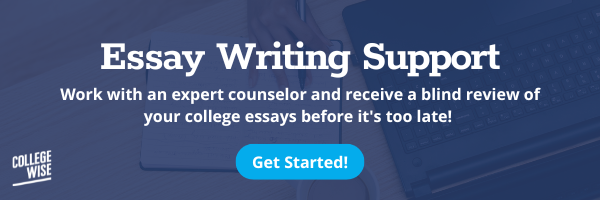
4. Being Too Creative & Lacking Clarity
Some students try so hard to be creative, or to entice the reader with a sense of intrigue, that they sacrifice clarity. If the reader is one paragraph in and thinking, “I don’t have a clue what this student is talking about,” the arousing interest has moved to confusion. It’s certainly possible and often effective to begin an essay with a description that piques interest without necessarily revealing exactly what the description is about. What's important to remember is that although the personal statement is a unique essay, a student should stay true to the writing style they feel most comfortable with.
Real college essay example: " Once you know what the chicken at Kentucky Fried Chicken looks like before it’s cooked, you will never want to eat it again. I love my part-time job, and I’ve worked there for almost three years. But I really don’t enjoy looking at that chicken before it’s cooked."
5. Anything that Would Show Up on Google
You might think you’ve read or heard the perfect opening someplace else—a book of sample essays, a speech, a line in your favorite movie, etc. But pirating someone else’s writing is plagiarism, and every college I can think of would frown on an applicant who steals other people’s work without crediting the source. There’s always that chance that your reader could recognize what you’re sharing. And if they have even the slightest suspicion, the answer will always be just a Google search away.
FAQs & Final Thoughts
While there is no 'right' way to start any college essay, a few approaches may not be the best use of the limited space students have. Our list is just a few of the many tips we share with our students to ensure they're submitting confident essays to the admissions committees. In addition to our essay don'ts, we've come across a few frequently asked questions regarding college essays or the personal statement.
What are the Common App Essay Topics?
Each year the Common App releases its 7 essay prompts from which students can choose and write. Although they usually stay the same, there may come a year where one of two may change. That's why it's important to review the prompts early.
To read through the Common App's 2021-22 essay prompts, read our Common App Essay Topics blog!
Are there Essay Topics To Avoid?
In short, yes! What's important to remember is that admissions officers read hundreds, if not thousands, of essays every application year, and they've read it all. Students need to write about their experiences and what helped shape them to be who they are rather than what they feel admissions officers want to read.
How Personal Should The Personal Statement Be?
Although the personal statement is a unique story for every student, many students write about personal struggles, challenges they face, and situations they overcame. And while there is no set list of topics to avoid, it is important to note that students should share how much they are comfortable with. After all, a stranger will be reading this essay.
Additional readings:
- Is a Personal Struggle an Appropriate Essay Topic?
- Is Your College Essay Ready to Submit?
- Tackling the Common App Personal Essay

About Us: With more than twenty years of experience, Collegewise counselors and tutors are at the forefront of the ever-evolving admissions landscape. Our work has always centered on you: the family. And just like we’ve always done, we look for ways for your student to be their best self - whether in the classroom, the applications, or in the right-fit college environment. Our range of counseling , test prep , academic tutoring , and essay management, all with the support of our proprietary platform , lead to 4x higher than average admissions rates.
Recommended Articles

College applications without essays: do they exist?

How to Write a College Transfer Essay
Subscribe to email updates.
- Tutoring & Test Prep
- Our Counselors
- Partnerships
- Upcoming Events
© 2024 Collegewise. All Rights Reserved. Privacy


IMAGES
VIDEO
COMMENTS
How do you avoid writing a bad admissions essay? Read on to find out what makes an essay bad and to learn which college essay topics to avoid. I'll also explain how to recognize bad college essays—and what to do to if you end up creating one by accident.
“Bad” college essay examples: these examples illustrate a few of the most common college essay mistakes we see. Grades: Our former admissions officers have assigned each essay a letter grade to help you understand where it falls on the scale of “bad” college essays to exceptional college essays.
Common College Essay Mistakes To Avoid. Below is a list and analysis of the types of mistakes to avoid on your college personal statement and avoid writing a bad college essay that will likely NOT get you into your program of choice. Avoid fatal mistakes in your college application essay.
Curious to know what bad college essays look like? Pick any college essay at random submitted to a college — even the highly selective ones — and there’s a great chance that you’ll pull out a bad essay. And why’s that? Because high school students just plain can’t write.
Were some of these applicants even trying to get accepted? Students and admissions counselors sound off on college essays that range from hysterical to flat out bizarre.
As you’ll see in the “Bad” Common App Essay Examples section below, unorganized essays are hard to read. Admissions officers read hundreds to thousands of applications in a single year, so they go through them fast.
One effective method for improving your college essay is to read example essays. Here are three sample essays, each with a bad and good version to help you improve your own essay. For each essay, we’ve included annotations to help you understand common mistakes and specific techniques.
Check out these outstanding college essay examples. Learn how to write your personal statement and supplemental essays for college applications.
Mistake #1: Staying shallow. College essays aren’t a time to mess around. As I’ve described at length in the college essay writing guide, they are a time to be deeply personal, even vulnerable. Shallow personal statements tell an admissions officer nothing about who you are as a person or student.
College essays need to start strong. Here are five opening college essay examples students want to avoid in order to impress college admissions officers!